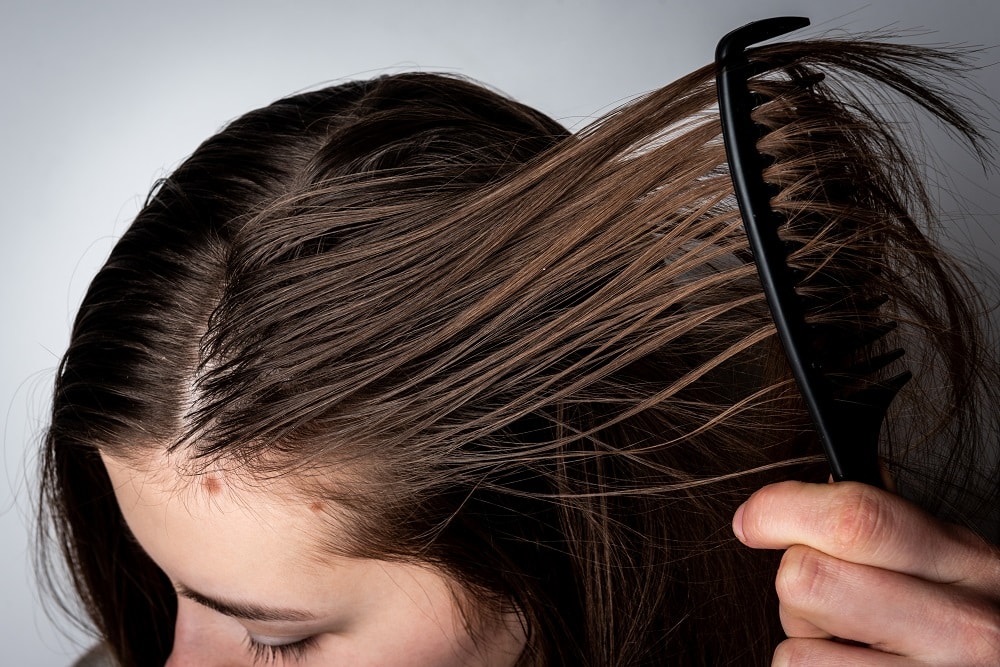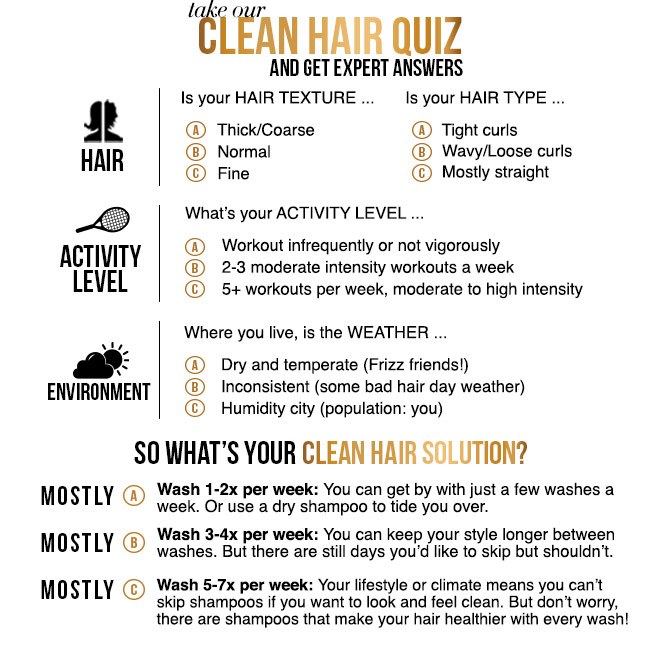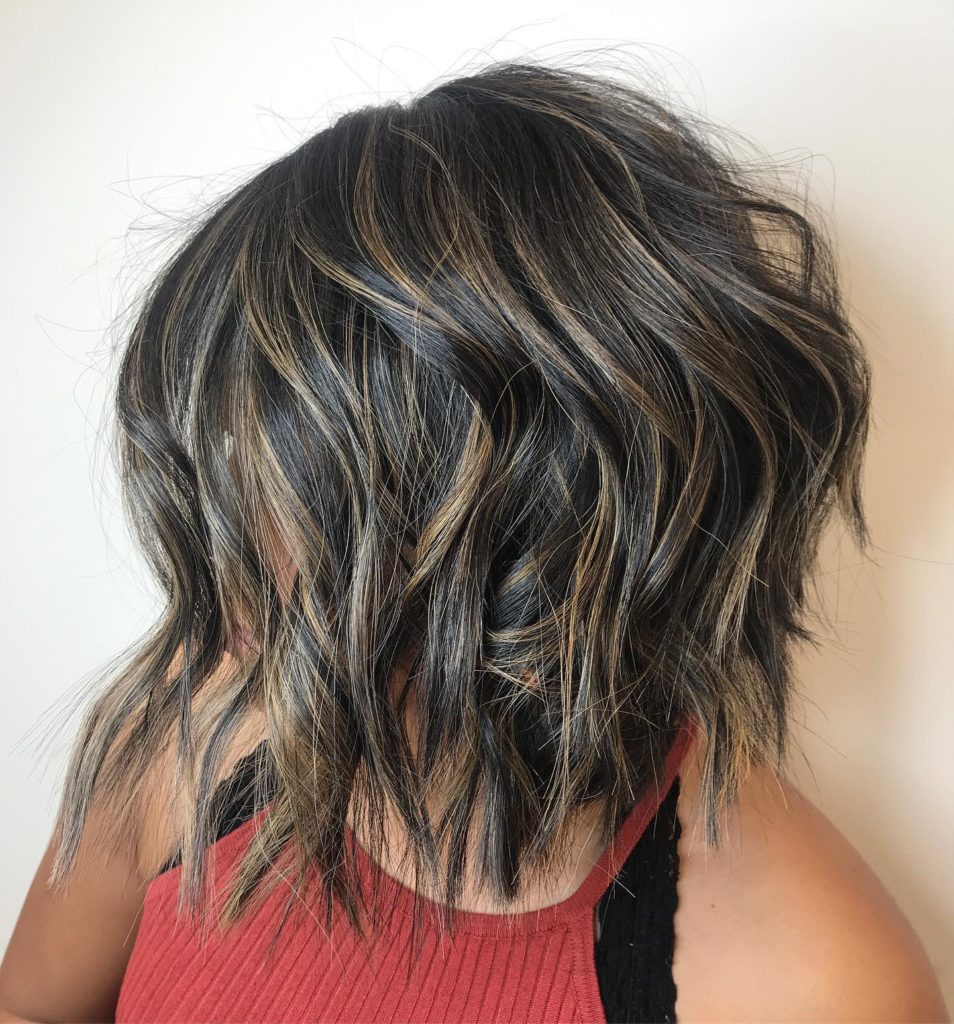Table Of Content

Start with just a little at the beginning, blending with fingertips as you go, then gradually build it up. Every time we wash our hair, we potentially stimulate the sebaceous glands which produce oil to protect the scalp. More washing equals more stimulation, so too much washing can actually make hair greasier – not cleaner. These sebaceous glands are also stimulated by extremes of temperatures, so very hot or very cold. With this in mind, aim to switch up your schedule by washing your hair every other day, or less if possible, using warm (not hot) water and gentle circular motions to massage shampoo in. The skin on your scalp deserves as much TLC as the skin on your face, so don’t be afraid to apply (the right) treatments at the roots of your hair.
Adjust Your Hair Washing Schedule
We should add that hair supplements are not regulated by the FDA, which means you should take their claims with a grain of salt. Still, some people experience good results from taking hair supplements, so if you're interested in giving them a go, try one designed to manage a greasy scalp. Polko is a fan of Nutrafol ($88), which is "rich in omega-3s and B vitamins" and can help to encourage healthy hair growth. Always consult your doctor before adding any supplement to your diet. Allison Friedman, a senior stylist at the Warren-Tricomi Salon in New Jersey suggests applying just one styling product to the scalp and only if you have flat hair that needs a boost of volume.
Why Does My Hair Get Greasy So Fast?
Taking supplements with vitamin B6 or essential fatty acids might help to control deficiencies and get your body’s balance back on track. If you’re concerned by how much you sweat or if your scalp is often irritated, speak to a dermatologist for some expert advice. You can wake up with a clean slate by making sure your pillowcases are as clean as they can be. All products featured on Allure are independently selected by our editors. However, when you buy something through our retail links, we may earn an affiliate commission.
Avoid products adding moisture
If your oiliness is likely caused by genetics or another factor that's out of your control, Birnbaum says you might need to shampoo more. "For an oily scalp, I recommend more frequent shampooing, up to once a day," she explains. Selecting the right shampoo for your hair type is very important.
Louis suggests going a day or two without washing and seeing what happens, or only washing your hair once or twice a week. (You can also try experimenting with dry shampoo to stave off the oil without actually washing.) If you’re ever unsure, talk to your hairstylist next time you’re at the salon! They’re the only person that may know your hair better than you.
Scalp detox treatments will also stimulate the roots for an overall healthy appearance (whether professional or an ACV rinse). In general, Dr. Mikailov recommends looking for products that are formulated with ingredients like salicylic acid, burdock root, and nettle that can help regulate sebum. Hydrating ingredients like aloe, vitamin B5, beta-glucans, eucalyptus, and moisturizing plant-based oils can help balance the scalp, as well. Limit your hot tool usage—even your blow dryer, as the hot air will stimulate oil production faster.
Natural Treatment for Oily Hair
And if you’re out shopping, look for shampoos labeled “clarifying”— those are generally good universal shampoos for oily hair. “A clarifying shampoo gently cleanses away any product buildup or outside-pollution buildup in your hair,” Louis says. The R+Co Oblivion Clarifying Shampoo is a cult classic and another great choice for many with oily strands. Toth says that gentle daily shampoos are key to dealing with greasy hair, especially those that are formulated with natural ingredients like plant extracts and oils.

Don’t apply the conditioner to your scalp, massage it into your ends instead. When shampooing, concentrate on scrubbing the scalp — but not too hard. Scrub moderately, enough to rub in the soap, but not so hard that you’re irritating your scalp. The irritation can overstimulate your glands and cause them to make more sebum. I know we said that consistency and long-term management were the best courses of action with oily hair, but sometimes? Tea tree is anti-inflammatory, as well as having some clarifying properties.
Here's How You Can Train Your Hair to Be Less Greasy
If you’ve been wondering why your hair gets greasy so fast even when you do everything right, we are right there with you. For those of us dealing with perpetually slick strands, it’s nice to know that we’re not alone. Finally, you can apply homemade hair masks to keep the oiliness in check. I particularly like the egg mask, aloe vera mask, fenugreek mask, and henna hair gloss.
Though it might feel counterintuitive to apply oils in an attempt to make hair less oily, certain essential oils work to break down sebum and clarify the pores on your scalp. You can also work on treating oily hair using simple home remedies. There are several ingredients that can work to cut through hair that feels greasy or looks oily. Sebum is a type of oil, which means that simply washing it with water doesn’t break it up. Rinsing your hair with just water or skipping the shampoo step and using only conditioner can allow oil to build up. As with many styling products, conditioners can weigh down the hair.
Yes, using a shampoo specifically formulated for oily hair can be beneficial for Indian audiences in managing excess oil and greasiness. Oily hair is a common concern among many individuals in India, and using the right shampoo can help address this issue effectively. Look for shampoos that are designed to cleanse the scalp thoroughly, removing excess oil and buildup without causing dryness or damage to the hair. Even if you're limiting your washes to a few times a week, unless you're doing it right you still may wind up feeling extra oily. "The way you wash your hair has a lot to do with how your scalp behaves," says Morales.
If Your Hair Gets Oily One Day After Washing, You Probably Need At Least One Of These Dry Shampoos - CTV News
If Your Hair Gets Oily One Day After Washing, You Probably Need At Least One Of These Dry Shampoos.
Posted: Fri, 08 Mar 2024 08:00:00 GMT [source]
Using dry shampoo between washes can help absorb excess oil and refresh the hair. It's important to avoid touching the hair frequently, as it can transfer oils from the hands to the hair, making it look greasier. Opting for hairstyles that keep the hair away from the face and neck, like braids, buns, and ponytails, can also help prevent the hair from becoming excessively oily. Finding the right balance is key, as over-washing can strip the hair of natural oils and lead to increased oil production.
If you’re washing your hair too often, your scalp gets the message that it needs to be in oil production overdrive. To manage oily hair effectively, it’s crucial to choose products designed for your hair type, avoid heavy ingredients, and maintain a balanced hair care routine. Your hair gets oily so fast due to overproduction of sebum, which can be triggered by factors like overwashing, underwashing, using the wrong hair products, and hormonal changes. Managing the frequency of hair washes and choosing the right products for your hair type can help control oiliness.
This has been proved to be very good at inhibiting sebum production as it has antioxidants and is an excellent method for oily hair treatment. One needs to apply it topically; alternatively it can be used to rinse the hair after a shampoo. And one more thing to keep in mind as your ridding yourself of these everyday oily scalp causes?
Well, if you're a daily washer, try tapering off to every other day to start. Once your hair grows accustom to that, you can try washing it every third day. Remember, oil is just part of the way your body protects your scalp, and there’s nothing dirty or wrong about a little oil buildup in your hair. This one will take a little trial and error to figure out, but if you find your mane is often weighed down by excess oil, chances are you need to switch up your beauty regimen. If you’re not ready to invest in a specialized shampoo meant to reduce oil, try using a gentle shampoo made for the sensitive scalps of babies and toddlers.
"In addition, I would also consider using a shampoo with salicylic acid such as Neutrogena T/Sal a few times a week." If you've had an oil-prone scalp for as long as you can remember — and have oil-prone skin on your face, too — chances are that's just your genetic code at play. "Some of us naturally produce more oil than others, which can lead to a greasy scalp," says Birnbaum. "If you have both an oily face and scalp, it's likely you are naturally oil-prone." Alongside genetics, Birnbaum says that oil production is also tied to hormones, stress, and (of course) humid weather.

No comments:
Post a Comment